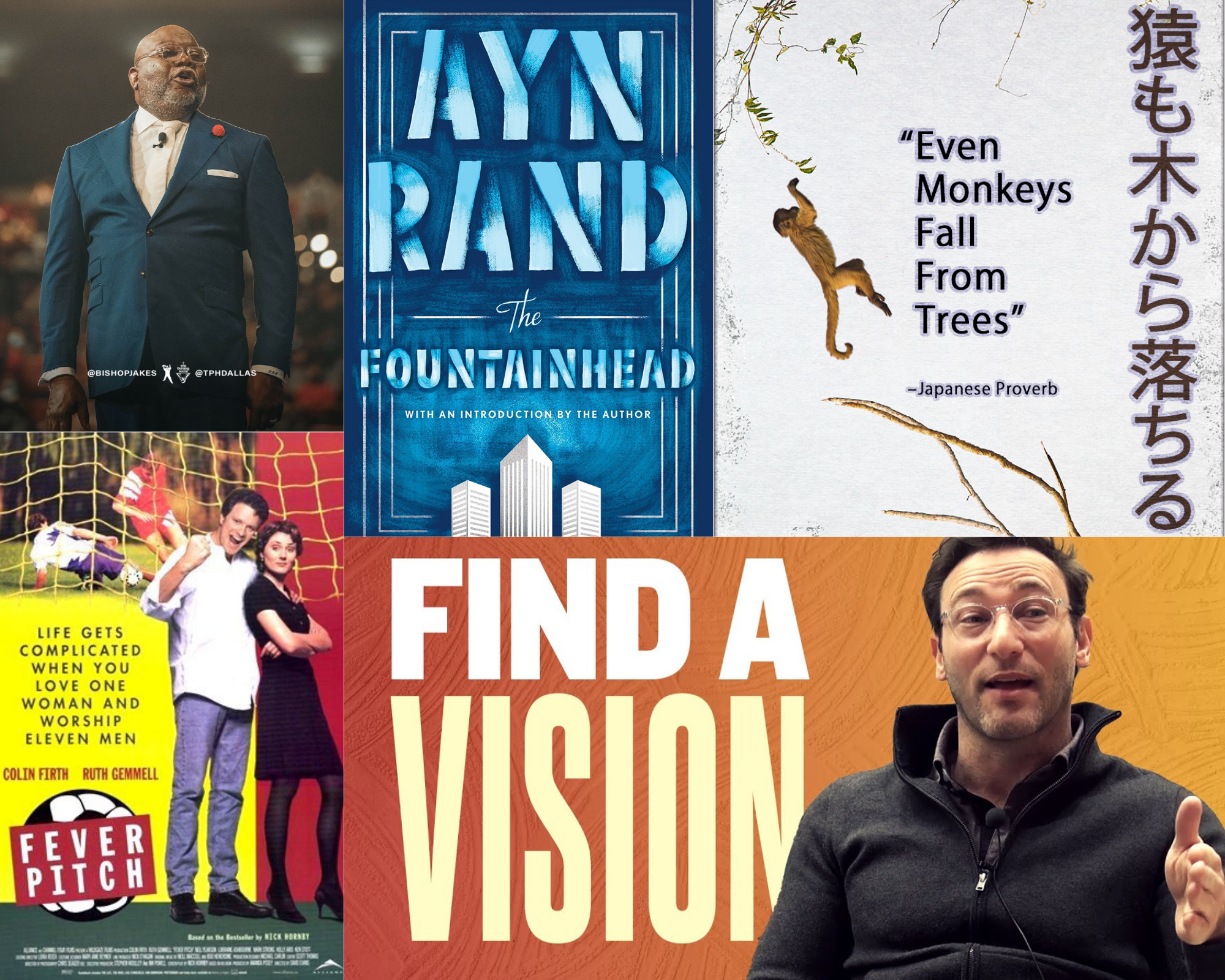Sunday Supplement #55 (May 29th, 2022)
Below is another Sunday Supplement with a quote worth sharing, a book worth reading, a movie worth watching, brainfood worth consuming, and a spiritual passage worth pondering.
I hope you take something away from these recommendations that enriches your week ahead!
Quote of the Week:
“Courage does not always roar. Sometimes courage is the quiet voice at the end of the day saying, ‘I will try again tomorrow.’”
– Mary Anne Radmacher
Book of the Week:
The Prince of Tides – Pat Conroy
Pat Conroy was a bestselling author with numerous awards for his novels and memoirs, including an F. Scott Fitzgerald Award in 2005.
Conroy’s novel The Prince of Tides is arguably his most famous.
Tom Wingo, a high school English teacher and football coach who recently lost his job, finds out his twin sister, Savannah, attempted another suicide and was hospitalized.
Wingo travels to New York to look after his sister and recounts the traumas of his upbringing.
The Wingo family has a tragic past that shaped each sibling’s life, which Tom has done his best to leave behind.
Tom is forced to relive the past after forming a relationship with Savannah’s psychologist that started by helping fill in the background of their childhood.
Wingo also has to deal with the present turmoil in his own family life after learning before leaving for New York that his wife is having an affair.
Pat Conroy’s brilliant novel spans forty years and takes a deep look into darker human experiences. It is a beautifully written and powerful story.
Movie of the Week:
Eternal Sunshine of the Spotless Mind
Joel Barish, played by Jim Carrey, finds out that his girlfriend Clementine Kruczynski, played by Kate Winslet, had all her memories of him erased by the firm Lacuna after their latest fight.
Barish decides to undergo go the same procedure after feeling heartbroken and recounting his memories of their strained relationship.
Barish begins to experience earlier happy memories as the firm initiates the procedure and realizes that he does not want to forget her.
The film won one Oscar, Best Writing – Original Screenplay, and received one other nomination for Kate Winslet in Best Performance by an Actress in a Leading Role.
Eternal Sunshine of the Spotless Mind delves profoundly into the complicated nature of relationships. The visuals of the movie are fantastic.
Charlie Kaufman, Michel Gondry, and Pierre Bismuth crafted a brilliant film that offers a truly unique viewing experience.
Brainfood of the Week:
Taking It One Day At A Time | The School of Life
The School of Life is a YouTube channel consisting of psychologists, philosophers, and writers devoted to helping people lead calmer and more reliant lives.
I’ve featured their videos before in Sunday Supplement #33 and Sunday Supplement #51.
In this video, The School of Life focuses on the concept of taking it a day at a time and the lessons that perspective brings.
Many things we place our hopes on take a long time to realize. Whether those hopes come in the form of a dream career, a house, or a family, they often take years or even decades.
Sometimes life places us in situations where a long-term hopeful disposition becomes impossible to maintain.
The typical response is to take things one day at a time. And this perspective has a lot to offer regardless of your situation.
The School of Life discusses how taking it day by day reduces the degree of control we expect to bear on the future. It allows us to combat impatience and overly critical thinking.
Conversely, we can attend to the little gifts within our grasp. We can be grateful for the things we often take for granted. A few wins from the day can help us move forward.
This is just a synopsis of the video, but there is much more wisdom in the video and on The School of Life channel worth checking out.
Closing Spiritual Passage:
“Three years sitting on a rock.” (石の上にも三年)
– Japanese Proverb
This Japanese proverb, three years sitting on a rock, speaks about change after hard times.
It might be difficult to see where the change happens from sitting three years on a rock, but the difference is that the rock gets warm.
By persevering through difficult times, we can often find that our situations change, especially if we look at different perspectives.
Sometimes we need to take it a day at a time, but we can see how much change we’ve experienced when we look back over a long period.
Growth takes time. Difficult situations change or pass by. I think of this proverb and how I can use my days while knowing that the rock will provide me warmth.
Things might not seem good in moments, but look to the good things in your life and know that you will be further along your path as time passes.
Know that bad times will eventually pass, cherish the good in your life, and have a blessed week ahead!
Comments closed


